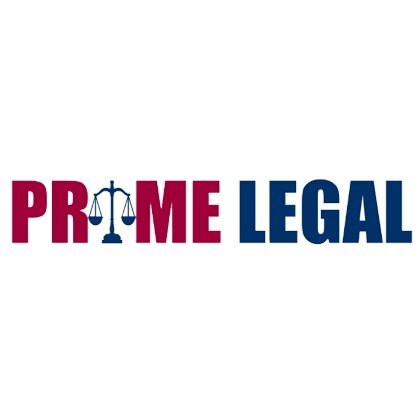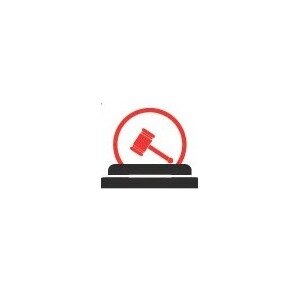Best Foreclosure Lawyers in Nepal
Share your needs with us, get contacted by law firms.
Free. Takes 2 min.
Free Guide to Hiring a Real Estate Lawyer
Or refine your search by selecting a city:
List of the best lawyers in Nepal
About Foreclosure Law in Nepal
Foreclosure in Nepal refers to the legal process by which lenders can recover the balance of a loan from a borrower who has stopped making payments. This typically involves the forced sale of the asset used as collateral for the loan. The legal framework for foreclosure in Nepal is primarily governed by the Insolvency Act and various banking regulations. The process aims to ensure fair treatment for both lenders and borrowers, while facilitating the recovery of outstanding dues by financial institutions.
Why You May Need a Lawyer
In Nepal, the foreclosure process can be complex and legally challenging, making the assistance of a lawyer beneficial in several situations:
- Understanding Rights: A lawyer can help homeowners comprehend their legal rights and obligations under foreclosure law.
- Negotiating Settlements: Legal assistance can be valuable when negotiating with lenders for a possible settlement or payment plan.
- Representation in Court: In cases where foreclosure leads to litigation, a lawyer can represent homeowners in court.
- Review and Advice: Reviewing loan agreements and foreclosure notices to ensure fairness and legality.
- Filing for Bankruptcy: Advising on whether filing for bankruptcy might be a suitable option to delay or prevent foreclosure proceedings.
Local Laws Overview
Nepal's legal approach to foreclosure involves several key elements:
- Secured Transactions: Loans secured by immovable assets are subject to specific requirements under Nepalese law.
- Insolvency Act: The Insolvency Act outlines procedures for asset liquidation in cases of default.
- Notification Requirement: Lenders must notify borrowers formally before proceeding with foreclosure actions.
- Judicial and Non-Judicial Foreclosure: Both court-supervised and out-of-court foreclosure processes may be applicable.
- Redemption Rights: Borrowers often have the right to redeem properties before sale by settling outstanding debts.
Frequently Asked Questions
What is the first step in a foreclosure in Nepal?
The first step typically involves a formal notice from the lender to the borrower indicating a default on the loan payments and demanding fulfillment of obligations.
Can I stop a foreclosure once it has started?
Yes, it might be possible to stop foreclosure by negotiating with the lender, meeting payment obligations, or seeking legal interventions such as bankruptcy.
How long does the foreclosure process take in Nepal?
The duration can vary significantly, depending on whether the process is judicial or non-judicial, but it often spans several months from notice to sale.
What happens to my property after a foreclosure?
After a foreclosure, the property is usually sold at an auction or by private sale to recover the loan amount, with remaining surplus, if any, returned to the borrower.
Do I have rights after my property is foreclosed?
Yes, borrowers might retain certain rights, including the right to dispute the foreclosure process if actions were not legally compliant.
What is a deficiency judgment?
A deficiency judgment may occur if the foreclosure sale does not cover the full loan balance, allowing lenders to seek remaining amounts from the borrower.
Can I buy back my property after foreclosure?
Borrowers often have a redemption period where they can reclaim their property by paying the full debt amount, including any costs incurred during the process.
What role does the court play in foreclosure?
In judicial foreclosure, the court oversees the process to ensure legality and fairness, whereas non-judicial foreclosure is handled directly by the parties involved.
How can I avoid foreclosure?
Avoiding foreclosure typically involves timely communication with lenders, seeking modifications, or financial counseling to address payment challenges proactively.
Is there any government support available for foreclosure issues?
The Nepalese government occasionally implements measures to support borrowers in distress, including financial counseling and restructuring loan programs. Checking with local governmental bodies for current programs can be beneficial.
Additional Resources
If you are facing foreclosure, several resources can provide assistance:
- Banking and Financial Institutions Regulatory Authority of Nepal: Reviews and governs processes related to secured lending and foreclosure.
- Consumer Protection Councils: Provide guidance and support for consumers facing financial challenges.
- Legal Aid Programs: Various legal aid clinics may offer free or low-cost legal advice to those in need.
- National Banking Policies: Stay updated with any governmental policies offering relief or restructuring options for loans in default.
Next Steps
If you require legal assistance in dealing with foreclosure, consider the following steps:
- Consult a Lawyer: Contact a specialized lawyer experienced in Nepalese foreclosure law to discuss your case.
- Review Your Situation: Gather all relevant loan and legal documents to provide comprehensive information to your lawyer.
- Explore Options: Work with your lawyer to explore possible solutions, such as loan modification or legal defense strategies.
- Plan Financially: Adjust your financial plan to accommodate any adjustments or settlements agreed upon during negotiations.
Lawzana helps you find the best lawyers and law firms in Nepal through a curated and pre-screened list of qualified legal professionals. Our platform offers rankings and detailed profiles of attorneys and law firms, allowing you to compare based on practice areas, including Foreclosure, experience, and client feedback.
Each profile includes a description of the firm's areas of practice, client reviews, team members and partners, year of establishment, spoken languages, office locations, contact information, social media presence, and any published articles or resources. Most firms on our platform speak English and are experienced in both local and international legal matters.
Get a quote from top-rated law firms in Nepal — quickly, securely, and without unnecessary hassle.
Disclaimer:
The information provided on this page is for general informational purposes only and does not constitute legal advice. While we strive to ensure the accuracy and relevance of the content, legal information may change over time, and interpretations of the law can vary. You should always consult with a qualified legal professional for advice specific to your situation.
We disclaim all liability for actions taken or not taken based on the content of this page. If you believe any information is incorrect or outdated, please contact us, and we will review and update it where appropriate.
Browse foreclosure law firms by city in Nepal
Refine your search by selecting a city.
















